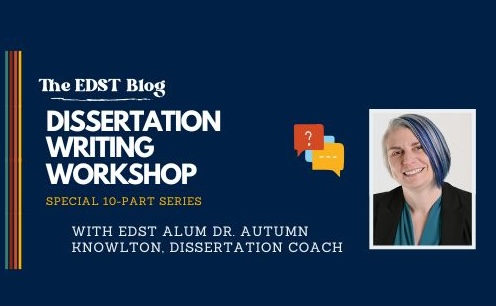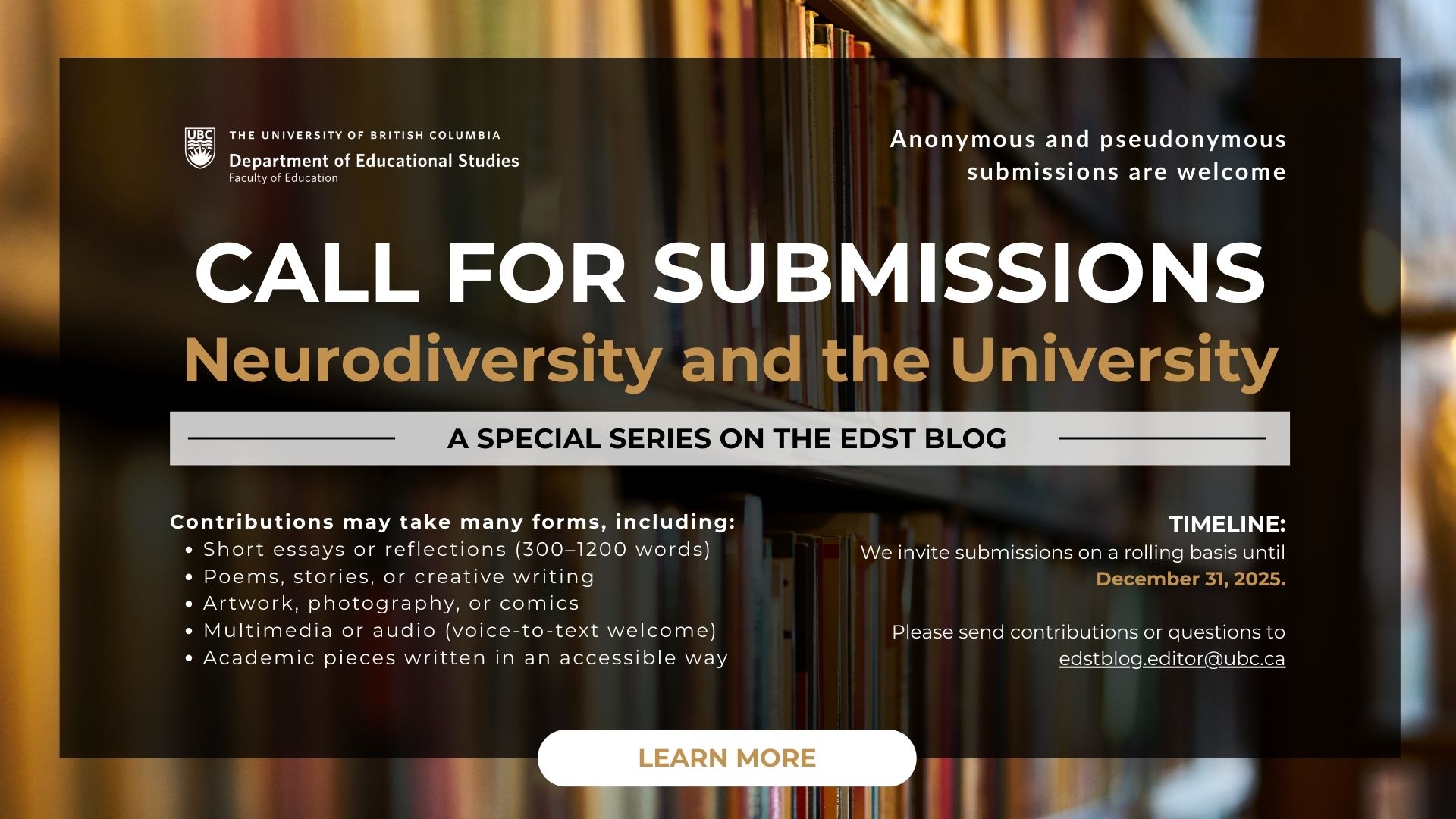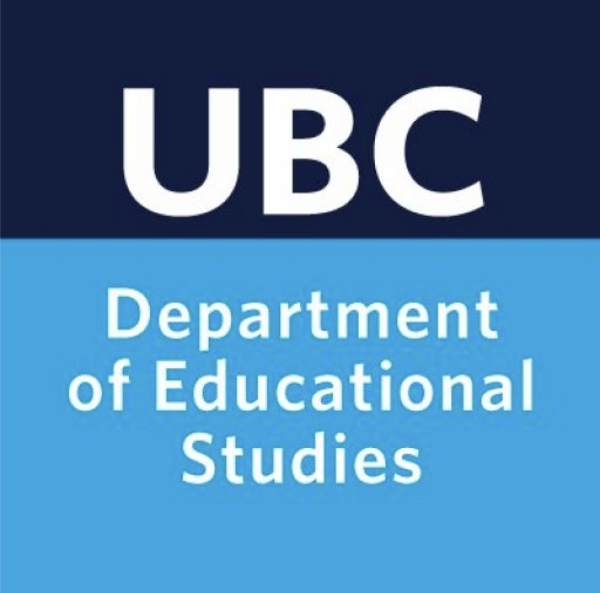Educational Studies Blog
Curated by EDST Students
Welcome to the UBC Educational Studies Blog!
Curated and led by EDST graduate students, this blog is a space for our whole community—students, faculty, staff, and alumni—to share ideas, research, and creative work. It supports graduate students in building their skills and competencies as early career researchers and education professionals, while fostering dialogue and connection across the department.
From personal narratives and poetry to multimedia projects and public-facing scholarship, the blog highlights diverse voices and perspectives that spark conversation and inspire learning.

Supporting Early Career Researchers, Faculty & Education Professionals
The EDST Blog is proudly funded by the UBC Department of Educational Studies (EDST) as part of its commitment to supporting early career researchers and education professionals. The Blog Editor role was created to provide graduate students with opportunities for mentorship, skill development, and leadership in research communication and writing.
While the blog’s editorial team is composed of graduate students who guide its content and direction, contributions are welcomed from all members of the EDST community. Our aim is to amplify student voices while also engaging faculty, staff, and alumni in meaningful dialogue that strengthens our shared commitments to education, within the university and beyond.
Latest Posts
-

Dissertation Writing Workshops with Dr. Autumn Knowlton: 10-Part Special Blog Series
This 10-part blog series shares key insights from two dissertation writing workshops led by EDST alum Dr. Autumn Knowlton, offering practical guidance on how to plan, write, and complete your dissertation with clarity and confidence.
-

EDST Well-Being Series: Mindfulness with Mahfida – September Diamond Art Painting Workshop
Diamond Painting Workshop with EDST
-

Call for Submissions: Neurodiversity and the University
The EDST Blog is launching a new Special Series: Neurodiversity and the University. This series celebrates the creativity and strengths of neurodivergent people while also creating space to reflect on the realities of navigating neuro-normative systems. We welcome contributions from across the UBC community—students, staff, faculty, and beyond—in any form: essays, stories, artwork, poetry, or…
-

In Memoriam: Ngũgĩ wa Thiong’o
In Memoriam: Ngũgĩ wa Thiong’o, who passed away, written by Handel Kashope Wright
-

Dissertation Training Series, Post 10 – Don’t Go in Circles: Writing, Editing, and Staying Sane
Separate writing from editing, use APA7 for structure, and manage your dissertation process with tools and strategies that help you finish strong.
-

Dissertation Training Series, Post 9 – “What I Did, Why It Matters”: Writing Your Scholarly Conclusion
Your conclusion chapter reflects on what you did, why it matters, and how your work contributes to future research, policy, or practice.
-

Dissertation Training Series, Post 8 – Weaving the Threads: Discussion and Meaning-Making
The discussion chapter weaves together your findings, framework, and literature to show meaning—and make your original contribution clear.
-

Dissertation Training Series, Post 7 – Sock Time: Presenting Your Findings with Clarity and Confidence
Your findings chapter is where your Significant Original Contribution to Knowledge (SOCK) begins to emerge, and where your scholarly voice comes alive.
-

Dissertation Training Series, Post 6 – You Are the Method: Positionality, Ethics, and Making Knowledge
Methodology is about how you create knowledge—your ethics, positionality, and methods must align with your research purpose and values.
-

Dissertation Training Series, Post 5 – Kitchen Rules: Conceptual and Theoretical Frameworks Explained
Conceptual and theoretical frameworks offer the lens for your analysis, but only the ideas doing real work should be in your dissertation.
-

Dissertation Training Series, Post 4 – Conversations, Not Catalogues: Writing a Literature Review with Purpose
A strong literature review is a conversation between scholars, not a list of sources—and it should support your research question at every turn.
